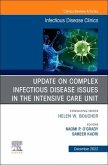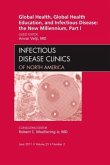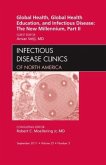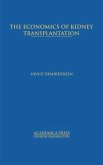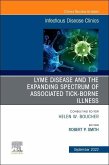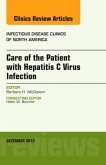Infectious diseases once considered vanquished in the developed world now represent a growing challenge to public health care systems. Not only do we face threats from new diseases such as AIDS, MRSA, SARS and Avian Flu, but old scourges such as tuberculosis are returning in drug resistant forms. Food-borne infections are common, encompassing both common bacterial infections that are associated with gastro-enteritis and new diseases that have crossed the species
barriers, such as BSE and the resultant new variant CJD. SARS and Avian Flu are the newest threats and have an increasingly high public profile. These diseases present complex and as yet unresolved problems for those involved in the control of infectious disease.
Jennifer Roberts and her international team present the contribution economists can make to the management and control of infectious diseases. The book leads the reader through the economic evaluation of specific diseases, chosen to reflect some of the great challenges to those aiming to control infectious disease in both developed and developing countries. It then examines the wider issues involved in the economics of infectious disease; modelling, governance and the control of outbreaks,
risk assessment models for food safety, the global perspective and the role of international regulatory co-operation, and the effect on trade.
Contagion is an ever-present threat to public safety, particularly high on the international policy agenda in the current climate of fears of bioterrorism and the return of diseases thought eradicated. This introduction to the methods and techniques of economics as applied to infectious diseases will make fascinating reading for those involved from both perspectives, and is a timely contribution to a major issue.
Hinweis: Dieser Artikel kann nur an eine deutsche Lieferadresse ausgeliefert werden.
barriers, such as BSE and the resultant new variant CJD. SARS and Avian Flu are the newest threats and have an increasingly high public profile. These diseases present complex and as yet unresolved problems for those involved in the control of infectious disease.
Jennifer Roberts and her international team present the contribution economists can make to the management and control of infectious diseases. The book leads the reader through the economic evaluation of specific diseases, chosen to reflect some of the great challenges to those aiming to control infectious disease in both developed and developing countries. It then examines the wider issues involved in the economics of infectious disease; modelling, governance and the control of outbreaks,
risk assessment models for food safety, the global perspective and the role of international regulatory co-operation, and the effect on trade.
Contagion is an ever-present threat to public safety, particularly high on the international policy agenda in the current climate of fears of bioterrorism and the return of diseases thought eradicated. This introduction to the methods and techniques of economics as applied to infectious diseases will make fascinating reading for those involved from both perspectives, and is a timely contribution to a major issue.
Hinweis: Dieser Artikel kann nur an eine deutsche Lieferadresse ausgeliefert werden.


